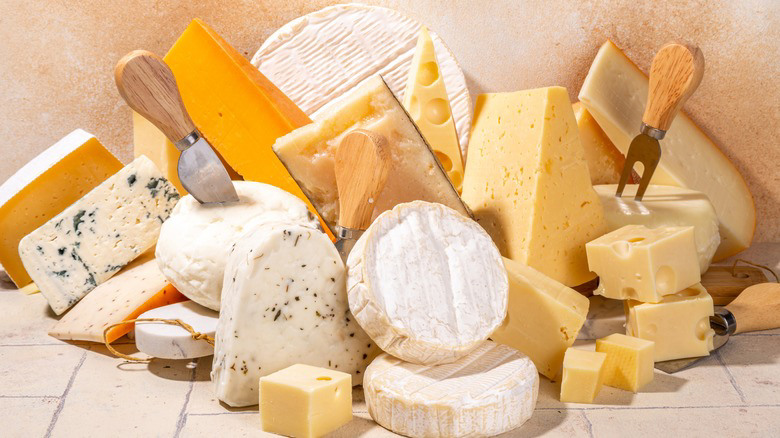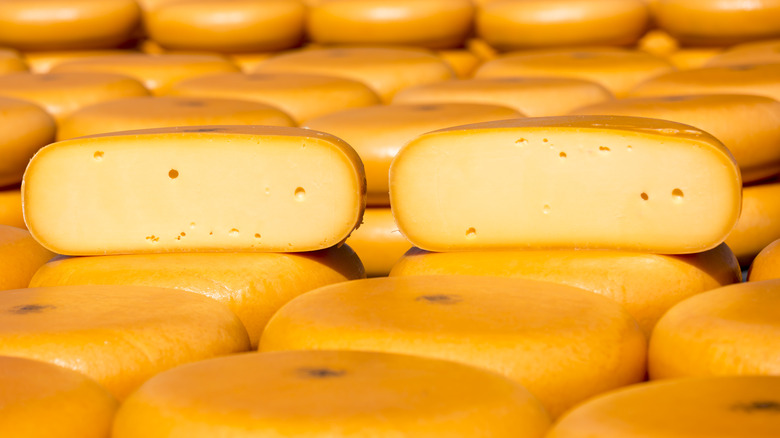When it comes to nutrition, protein is the heavyweight champion we all admire. We often think of meat and fish as the gold standard for protein consumption, but let me introduce you to a contender that might just take the title: cheese! Yes, that delicious, creamy, and versatile ingredient can pack a protein punch that rivals—and even exceeds—some cooked meats and fish.
Excited to find out which cheese this is? Let’s dive right in!
Understanding Protein Content in Foods
Before we can really appreciate cheese’s protein prowess, we need to understand how protein works in our bodies and why it matters. Protein is vital for muscle health, tissue repair, and even producing enzymes and hormones.
Typically, meats and seafood have been the go-to sources for many, but cheese offers a surprising alternative that can fit into a balanced diet.
Cheese: The Underdog with a Protein Punch
Among the various types of cheese, one stands out when discussing protein content: Parmigiano-Reggiano. This hard, aged cheese is not only a culinary delight but also a protein powerhouse, boasting about 35 grams of protein per 100 grams!
To put that into perspective, cooked chicken breast typically has about 31 grams of protein per 100 grams, while fish varieties fall along similar lines.
Why Parmigiano-Reggiano?
So, what is it about Parmigiano-Reggiano that elevates it above the rest? First off, the aging process intensifies both the flavor and the nutritional density.
The cheese is made from cow’s milk that’s been aged for a minimum of 12 months, during which the water content decreases, concentrating nutrients—including protein.
Comparing Cheese to Meat and Fish
Now, while it’s easy to get swept up in the numbers, let’s break it down simply. Meat and fish are often perceived as the primary protein sources because they come with other attributes like essential fatty acids and minerals.

However, cheese is equally rich in calcium and often provides beneficial probiotics, particularly in varieties like Gouda and cheddar that undergo fermentation.
The Nutritional Advantages of Cheese
Let’s talk benefits! Unlike meat, cheese contains less saturated fat when you choose low-fat varieties, allowing you to enjoy a protein-rich diet without piling up calories.
Plus, it’s incredibly versatile—you can sprinkle it on salads, melt it into sauces, or simply enjoy it as a snack. Isn’t it great to have options?
How to Incorporate More Cheese into Your Diet
Adding Parmigiano-Reggiano or other high-protein cheeses to your meals is easier than you might think.
Try grating it over pasta dishes, stirring it into soups for creaminess, or pairing it with fruits for a delightful snack. The possibilities are endless!
Potential Downsides to Consider
Though cheese has a lot going for it, moderation is key. It can be high in sodium, and some people may experience lactose intolerance, which can make enjoying cheese a bit tricky.
Always listen to your body and consult with a healthcare professional if you’re unsure about your dietary choices.
Conclusion
In conclusion, the world of cheese, particularly Parmigiano-Reggiano, offers a delightful way to meet your protein needs without always reaching for meat or fish.
By incorporating cheese sensibly, not only do you diversify your meal plans, but you also explore flavors and textures that take your culinary experience up a notch.
Cheese might just become your new best friend in the kitchen!
FAQs
1. Is all cheese high in protein?
Not all cheeses are created equal. While Parmigiano-Reggiano is particularly high in protein, many soft cheeses tend to be lower. Look for hard, aged cheeses for a protein boost!
2. Can cheese help with muscle building?
Yes! Cheese can be a great source of protein needed for muscle repair and building, making it a suitable option for athletes and fitness enthusiasts.
3. Are there plant-based cheeses with high protein content?
Yes! Some nut-based cheeses are fortified with protein, but they typically don’t match the levels found in dairy cheeses. Always check nutrition labels to compare.
4. How can I use cheese in my diet?
Cheese can be used in countless ways: as a topping for salads, an ingredient in pasta dishes, or even as a snack paired with fruits or whole-grain crackers!
5. What are the health benefits of cheese besides protein?
Cheese provides calcium for strong bones, beneficial probiotics for gut health, and essential fatty acids, along with a myriad of vitamins, particularly vitamins A and B12!

